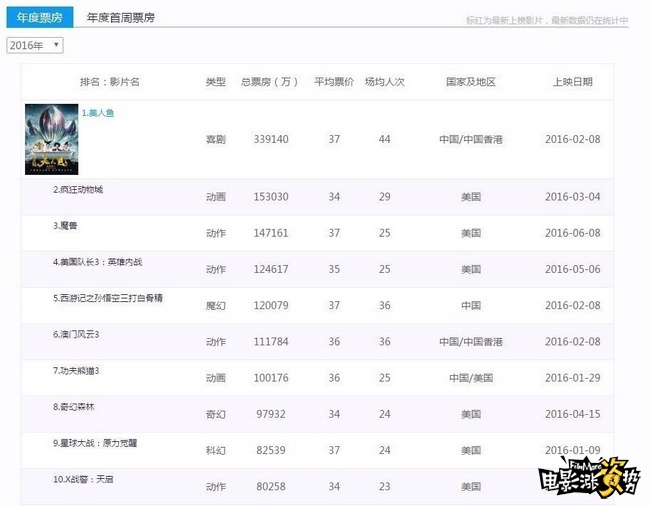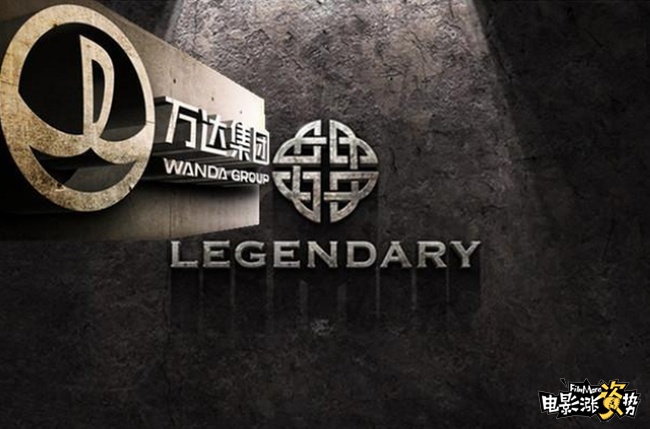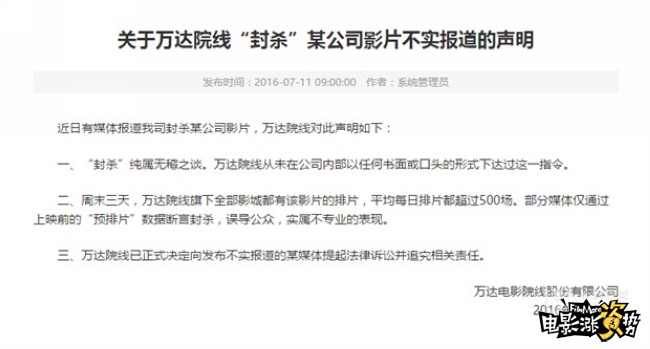Summary of the film market in the first half of 2016: What major events happened in the film circle?

This article was first published in "Movie Rising Potential". Welcome to WeChat search filmmore for attention.
1905 movie network exclusive Although 2016 has just passed halfway, the excitement of the film circle almost exceeds the sum of last year: encouraged by the 44 billion good news last year, the Chinese film market is still developing fiercely and the industry ecology has been improved more soundly.
However, after the chicken blood, the imperfection of the film industry itself has also made many people in the industry return to rational thinking; The emergence of chaos and the emergence of industry bubbles have made some impetuous speculators show their true colors. Building a healthy market order, creating good film works and ensuring the steady development of the industry still require all filmmakers to make down-to-earth efforts … …
Let’s review what happened in the film circle in the first half of the year:
The box office was 24.582 billion yuan in the first half of the year, and the target of 60 billion yuan for the whole year was "stressful"
As of June 30, 2016, the cumulative box office of China mainland cinemas reached 24.582 billion, a year-on-year increase of 21.41%; 723 million people watched movies, up 29.73% year-on-year; The number of screenings reached 34.58 million, a year-on-year increase of 37.75%, and the average number of people watching movies was 21.
The Mermaid, a Chinese New Year movie, has accumulated a total box office of 3.392 billion yuan, making it the highest-grossing movie in the first half of the year. It broke the box office records of the first day, the first day and the first week in a row as soon as it was released, and finally broke the box office record of mainland cinemas maintained by monster hunt. At the same time, the box office revenue of domestic films in the first half of the year was 12.989 billion, surpassing that of imported films by 11.592 billion, accounting for 53%, completing the counterattack.

Top 10 box office of movies released in the mainland in the first half of the year
On the import side, Disney takes Star Wars: The Force Awakens, Zootopia’s Fantasy Forest, and Captain America: Civil War, a subsidiary of Marvel Pictures, as the dominant player.
However, the box office in the first half of the year also showed a trend of "high opening and low going": the first quarter increased by 50% year-on-year; In the second quarter, it fell by 4.6% year-on-year, which was the first negative growth in five years. In the "big vacuum period", there was even a negative growth in April and May.
To achieve the goal of 60 billion yuan for the whole year, it must reach at least 35.418 billion yuan in the second half of the year, which means at least 49.8% year-on-year growth in the second half of the year, which can be described as "great pressure".

The internationalization process of "Wanda Dad" has taken another big step forward.
Capital: Wanda acquired Legend and held hands with Dolby, and "Warcraft" dominated the film market in June.
The "Wanda Dad", who has always been a local tyrant, made a big move at the beginning of the year: On January 12th, Wanda Group officially announced that it would spend $3.5 billion to acquire 100% of Legendary Pictures, a medium-sized Hollywood production company in the United States, which became the largest overseas cultural acquisition by China enterprises so far, making Wanda Film and Television Holding Company the highest-paid film company in the world.
Looking back on Wanda’s acquisition of AMC in North America in 2012, Hoyts, the second largest cinema in Australia in 2015, the acquisition of Muwei Fashion, a big data application company, Shimao Cinema, which focuses on second-and third-tier cities, and the subscription of a 20% stake in Time Network, it is not difficult to find that Wanda is laying out an eco-industrial chain and expanding its territory from a global perspective.
As the first film released in the mainland after the legend was acquired by Wanda, the performance of Warcraft is also very fierce — — Two days after the release, it broke 600 million and set a historical record; In June, the box office was 1.462 billion yuan, almost close to the sum of the box office of the following three films: X-Men: Apocalypse, The Thieves 2 and Independence Day: The Return. In late June, the first batch of Dolby cinemas in Asia all settled in Wanda, and "Warcraft" naturally became the first film to be shown.
This is in stark contrast to the bleak North American box office of Warcraft. As of today, the global box office of the film is 430 million US dollars, and the North American market accounts for only 10.8%. Of the $383 million overseas box office, China alone contributed only 230 million, accounting for 57.6%.

Zheng Jun and Liu Yun are unwilling to believe in the "ban theory" and are full of anger and helplessness about "locking the field" in advance.
Storm: Ye Ning left Wanda to join Huayi, and "Rock Tibetan Mastiff" fell into a low-profile puzzle.
On February 29th, Ye Ning, who has been the general manager of Wanda Cinema, the vice president of Wanda Culture Group and the chairman of Wuzhou Film Distribution Co., Ltd. for 15 years, switched to the arms of Huayi Brothers, became the CEO of Huayi Brothers Film, served as the deputy general manager of Huayi Brothers, and was nominated as a director candidate.
However, the animated film project "Rock Tibetan Mastiff", which was once led by Ye Ning during his stay in Wanda, was ranked last in the Wanda Cinema recently, which led to speculation in the industry that due to Ye Ning’s departure, Wanda banned Huayi, and the six-year hard work of Zheng Jun’s team for "Rock Tibetan Mastiff" was about to turn into cannon fodder. Zheng Jun and his wife both reluctantly expressed their reluctance to believe this speculation.
However, after the film was released, Wanda’s actual arrangement was much higher than the six pre-arranged films, and the low-arranged films of many cinemas almost denied the "ban theory", which is probably only caused by the low expectations of the cinema for the film. However, a recently leaked notice of personnel changes caused by mistakes in the distribution department in Huayi led the incident to Huayi. On July 11, Wanda also officially issued a statement denying the "ban". Zheng Jun, on the other hand, thinks that the low-ranking films are due to the "lock-up" of films in the same period in advance, and angrily says that he will never kneel for low-ranking films, but will only hold the middle finger.

Wanda voiced its denial of the "blocking theory"
However, Zi Shijun is more concerned about whether Wanda, which has already got through the upstream and downstream, can suppress rival works through its own channel advantages without restraint. Does it constitute a monopoly for production companies to get involved in distribution and screening at the same time?
This topic is reminiscent of the "Paramount Act" of the United States in 1948. For the development of China’s film industry, this may also need further consideration from a legal perspective.